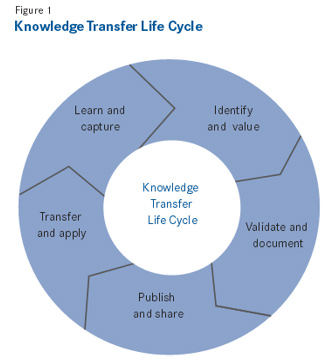HEALTH CARE LEADERS – CAPTURE THE KNOWLEDGE LEGACY
of Retiring Boomers and Seasoned Departing Employees
Health care professionals are leaving employment in record numbers. In the case of Baby Boomers, the exit is crowded with thousands retiring every day. Then the upcoming largest segment of the U.S. workforce, Millennials, are increasingly mobile especially when doubtful about their ability to grow in their chosen profession.
So while “moving on” for different reasons, it results in similar consequences for health care employers. Those consequences are “brain drain,” i.e. when educated, professional workers leave the taking knowledge, intellectual property and know-how with them.
Boomers have long been the single largest segment of the workforce. Boomers and Millennials combined represent an overwhelming percentage of the U.S. labor pool. Notably, while Boomers and Millennials have differing motivations for parting ways with a health care employer, capturing their knowledge is equally imperative before they exit.
Boomers are Exiting at the Rate of 10,000 Every Day
As stated in an article, The Staffing Stream notes: It is official – by 2029 all baby boomers will be 65 years or older, causing the largest occurrence of Brain Drain the US workforce will have ever seen. In order to ease the brain drain pain and fill future leadership gaps, businesses across the country must be prepared to actively facilitate programs that encourage baby boomers to transfer their skills to Millennials as they begin to take over the workforce.
Failure to do so will result not only in the loss of knowledge and know-how of Boomers’ years of experience, it will also accelerate turnover in the ranks of Millennials. Lack of exposure to the proven successes of the preceding generation may encourage Millennials to seek job satisfaction, challenge and achievement with other health care employers that have solved the brain drain problem and closed the knowledge and leadership gaps between the two generations.
Millennials are Primed to Perform
Notably, Millennials are more than just receptive to assistance from the Boomers. Some interesting results from research done at University of North Carolina reveals that 75% of Millennials want a mentor; and 58% prefer seeking guidance from Boomers rather than Gen X. As proof of this undercurrent of Millennials seeking growth, 65% of surveyed Boomers report being asked for help by Millennials.
To put the potential for brain drain as a result of Boomers exiting the workforce in perspective, it is important to recognize the significance of Boomers, until now, being the largest single generation in U.S. history. They represent 24% of the U.S. population, 31% of the workforce, and perhaps most significantly … 56% are in leadership positions.
In this article, we’ll explore just three of the many steps that may be taken by health care employers intent on mitigating the brain drain that may accompany Boomer retirement.
Knowledge Transfer Life Cycle
We’ll start with a useful graphic representation of the process outlined in a report by The Conference Board that offers a comprehensive explanation of each of the steps displayed in the image below.

Phased In Retirement
Another element in successful knowledge transfer among different generations of workers is a phased-in retirement program. Unfortunately, few health care employers do so. The value of such an approach allows Boomers to move into retirement at their own pace. It also sets the stage for the third step to be discussed in this article – proactive knowledge transfer through mentoring.
Mentoring & Coaching
Above, we saw that the case is made for Millennials being thirsty for assistance from the Boomers. A two-pronged mentoring approach will create a structure within which a successful program may be developed.
First, initiate a fundamental requirement of every job, regardless of level, to integrate collaboration and knowledge transfer. That may take the form of cross-training, formal instruction or one-on-one coaching.
Second, ensure that mentoring and coaching roles engage in activities, not just conversations. The objective is to foster on-the-job education and relationship building that result in real-world application of skills.
In pursuing approaches to capitalize on a multi-generational approach to knowledge sharing, success will be enhanced by recognizing how best to approach each group of workers.
For a more in depth look, refer to this study completed a few years ago entitled: Passing the Torch: 5 Steps for Turning the Baby Boomer Brain Drain into a Brain Trust
The encouraging thing about undertaking this knowledge transfer challenge is that 56% of employed Boomers are in leadership positions. They are often the same people who can pull the trigger to get a program underway and provide guidance, oversight and accountability for its completion.
Exit Interviews – A Rich Resource for Knowledge Transfer
While Boomers’ reasons for leaving a health care employer are often age-related, Millennials do so for a variety of other reasons. Nevertheless, their departure includes loss of a wealth of information relating to culture, management styles, processes, compensation, policies and procedures … as well as frustrations that may have influenced the employee’s decision to leave. Enlightened health care employers will actively work to capture this information and act on it to strengthen the organization and increase the retention of star performers and solid teammates.
Upon submitting a resignation and asked why, employees will typically say such things as more money, shorter commute and better benefits. What remains unsaid is the trigger or tipping-point that led to seeking an alternative opportunity, often lifestyle and sometimes work-life balance. The unspoken reasons also include a dislike for the organization’s direction, its culture, its leadership and lack of advancement opportunities. Interestingly, there are reports that as much as 50% of resignations are attributable to the management style of the departing employee’s supervisor … not often revealed for fear of loss of future references.
Employers who conduct exit interviews … with proper planning and intent to use the information constructively … will benefit from revealing patterns useful in assessing all aspects of the working environment. This gained knowledge may prompt management actions to enhance relationships with staff, patients, suppliers, third-parties and the general public.
Objectives
The objectives for the exit interview are fourfold:
- Gain knowledge of the employee’s work experience with the company;
- Keep track of exit interviews over a period of time to identify trends and patterns of why employees choose to leave;
- Formulate plans and initiate actions to deal with trends that require corrective attention;
- Enable transfer of knowledge and experience.
Properly planned and conducted exit interviews are valuable to both departing employees and the employer’s management team. Employees are likely to feel complimented at the opportunity to give constructive feedback and part company on good terms and a positive note. Management that uses the data gained from these exit interviews will be able to take actions that are either remedial or preventative, e.g. improved health and safety, stress reduction and fairness on the job. Also, fixes may be of a more strategic nature dealing with improved onboarding, training, process improvement and customer service delivery. Done effectively … a win-win!
Summary
By embracing this knowledge transfer challenge, decision makers can strengthen the company culture in numerous ways. Fifty-six percent of employed Boomers are in leadership positions. They are often the same people who can pull the trigger to get a program underway and provide guidance, oversight and accountability for its completion. The payoffs: retention of knowledge and know-how plus higher retention of strong performers and teammates.
